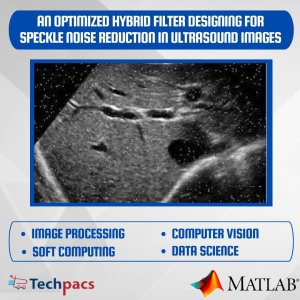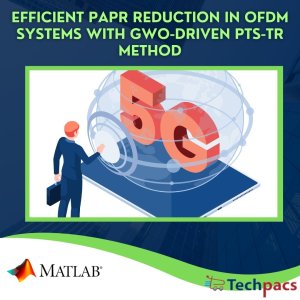Integration of MPPT Techniques and Battery Energy Storage System for Efficient Solar Power Utilization
Problem Definition
After reviewing the existing literature on solar-powered charging stations, it is evident that there are certain limitations and problems that need to be addressed. One of the main issues is the use of traditional PID controllers with fixed input coefficients Kp, Ki, and Kd. These static coefficients may not always be optimal for varying conditions, leading to suboptimal performance of the charging station. Additionally, the manual and fixed input settings of the controller can hinder its ability to adapt to changing circumstances, affecting its overall efficiency.
Furthermore, the existing technology lacks the adaptability and robustness required to meet the challenges posed by fluctuations in solar power generation and electric vehicle demand.
It is clear that there is a need for a new technology that can improve the control unit of solar-powered electric vehicle charging stations. By addressing these limitations and problems, the proposed project aims to develop a controller that can enhance the performance and efficiency of solar-powered charging stations, ultimately enabling better integration of renewable energy sources into the transportation sector.
Objective
The objective of this project is to develop a more efficient and adaptable controller for solar-powered electric vehicle charging stations. By addressing the limitations of traditional PID controllers with fixed input coefficients, the proposed work aims to implement a novel PID control system based on Maximum Power Point Tracking (MPPT) techniques. This system will utilize dynamic parameters and a Genetic Algorithm (GA) for optimal selection of Kp, Ki, and Kd values. Integration of a battery energy storage system (BESS) and an AC grid power source will ensure continuous charging of electric vehicles regardless of fluctuations in solar power generation. The goal is to improve the overall performance and efficiency of solar-powered charging stations, enabling better integration of renewable energy sources into the transportation sector.
Proposed Work
After conducting a thorough literature review, it was found that existing techniques for improving the performance of solar-powered charging stations were limited by the use of traditional PID controllers with fixed input coefficients. To address this gap, the proposed work aims to develop a novel PID control system based on Maximum Power Point Tracking (MPPT) techniques. This new system will incorporate an improved PID controller with dynamic parameters, optimizing the MPPT system's output using a Genetic Algorithm (GA) for selecting the most effective Kp, Ki, and Kd values. Additionally, the integration of a battery energy storage system (BESS) and an AC grid power source will ensure uninterrupted charging of electric vehicles even during times of low solar or BESS power output.
By combining the MPPT techniques with a dynamic PID controller and GA optimization, the proposed system will be able to adapt to changing environmental conditions and maximize the efficiency of solar-powered electric vehicle charging stations.
The use of BESS and AC grid power will provide a reliable source of energy to ensure continuous operation throughout the day and address the limitations of relying solely on solar power. The approach of this project was guided by the need for a more adaptable and robust control unit for solar-powered charging stations, addressing the research gap identified in the literature and aiming to achieve optimal performance in the charging system. The rationale behind using specific algorithms and techniques was to enhance the control system's efficiency and overcome the limitations of traditional PID controllers, ultimately improving the overall reliability and effectiveness of solar-powered electric vehicle charging stations.
Application Area for Industry
This project's proposed solutions can be applied in various industrial sectors, including electric vehicle charging stations, renewable energy systems, and smart grid technologies. The challenges faced by these industries include inefficiencies in traditional PID controller systems, fixed input settings, and reliance on static coefficients for control. By implementing the new PID control system based on MPPT techniques and dynamic parameters, industries can achieve enhanced performance, adaptability, and robustness in controlling solar-powered charging stations. The integration of a GA-based optimization system and battery energy storage further ensures continuous power supply, even during nighttime or when solar power output is insufficient. This innovative approach not only improves the efficiency of charging stations but also contributes to sustainable energy practices and grid stability.
Application Area for Academics
The proposed project can greatly enrich academic research, education, and training in the field of solar-powered electric vehicle charging stations. By implementing a novel PID control system based on MPPT techniques, researchers and students can explore innovative ways to improve the performance and efficiency of such systems. This project offers a unique approach by incorporating dynamic parameters in the PID controller and utilizing GA-based optimization to tune the controller for MPPT systems.
The application of this project can be extended to various technology and research domains such as renewable energy, power systems, control engineering, and sustainable transportation. Researchers, MTech students, and PHD scholars can leverage the code and literature of this project to enhance their work in designing and optimizing solar-powered charging stations for electric vehicles.
Further scope of this project includes the potential for real-time simulations, data analysis, and experimental validation to validate the effectiveness of the proposed PID control system. By exploring new methods and techniques in this area, researchers can contribute to the advancement of renewable energy technologies and sustainable transportation systems.
Algorithms Used
The proposed work utilizes a new PID control system based on MPPT techniques to address issues with traditional models. This system incorporates an improved PID controller with dynamic parameters, alongside a Genetic Algorithm (GA) for optimizing Kp, Ki, and Kd values. The GA method iteratively tunes the PID controller for MPPT systems, enhancing efficiency and accuracy. Additionally, a battery energy storage system (BESS) is integrated with the MPPT system and an AC grid power source to ensure continuous operation of EV charging modules throughout the day. The combination of these algorithms and techniques contributes to achieving the project's objectives of maximizing power generation and providing uninterrupted charging services.
Keywords
SEO-optimized keywords: Solar-powered charging system, Electric Vehicles, EV charging infrastructure, Genetic Algorithm, PID control, Proportional-Integral-Derivative control, P&O control, Perturb and Observe control, Energy management, Energy conversion, Energy efficiency, Renewable energy integration, Solar energy, Smart charging, Energy harvesting, Sustainable transportation, EV charging station, Power electronics, Artificial intelligence, Maximum Power Point Tracking, MPPT techniques, Battery Energy Storage System, GA-based optimization, Dynamic PID controller, AC grid power source
SEO Tags
solar-powered charging system, electric vehicles, EV charging infrastructure, genetic algorithm, PID control, proportional-integral-derivative control, P&O control, perturb and observe control, energy management, energy conversion, energy efficiency, renewable energy integration, solar energy, smart charging, energy harvesting, sustainable transportation, EV charging station, power electronics, artificial intelligence, MPPT techniques, maximum power point tracking, battery energy storage system, GA-based optimization system, adaptive control system, solar PV panels, AC grid power source, solar-powered electric vehicle charging, literature review, research proposal, PhD research project, M.Tech research project, research scholar, research methodology, optimization techniques, control unit performance, dynamic parameters, PID controller tuning, charging module operation, sustainable energy solutions, renewable energy systems, smart grid technology.
| Shipping Cost |
|
No reviews found!

















































No comments found for this product. Be the first to comment!